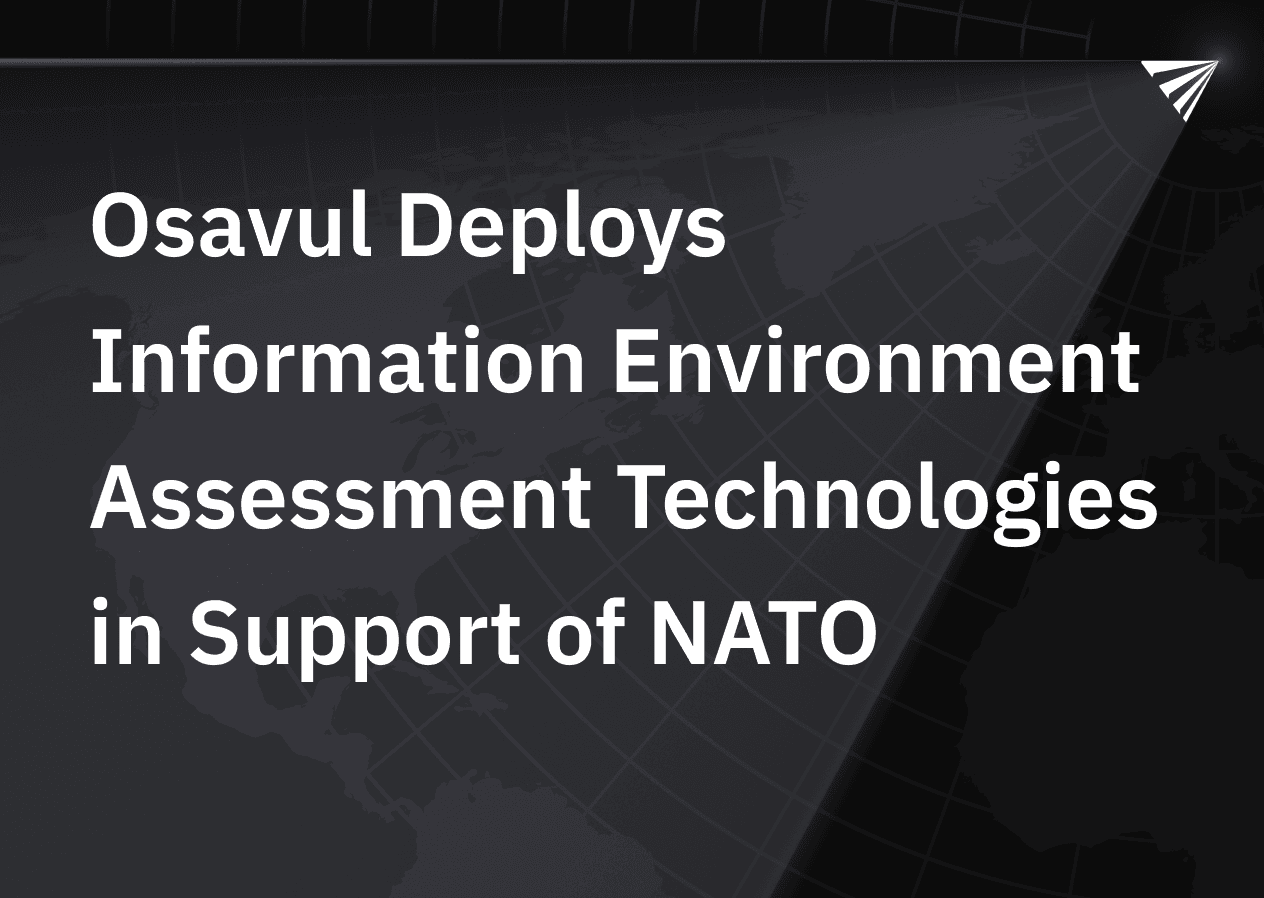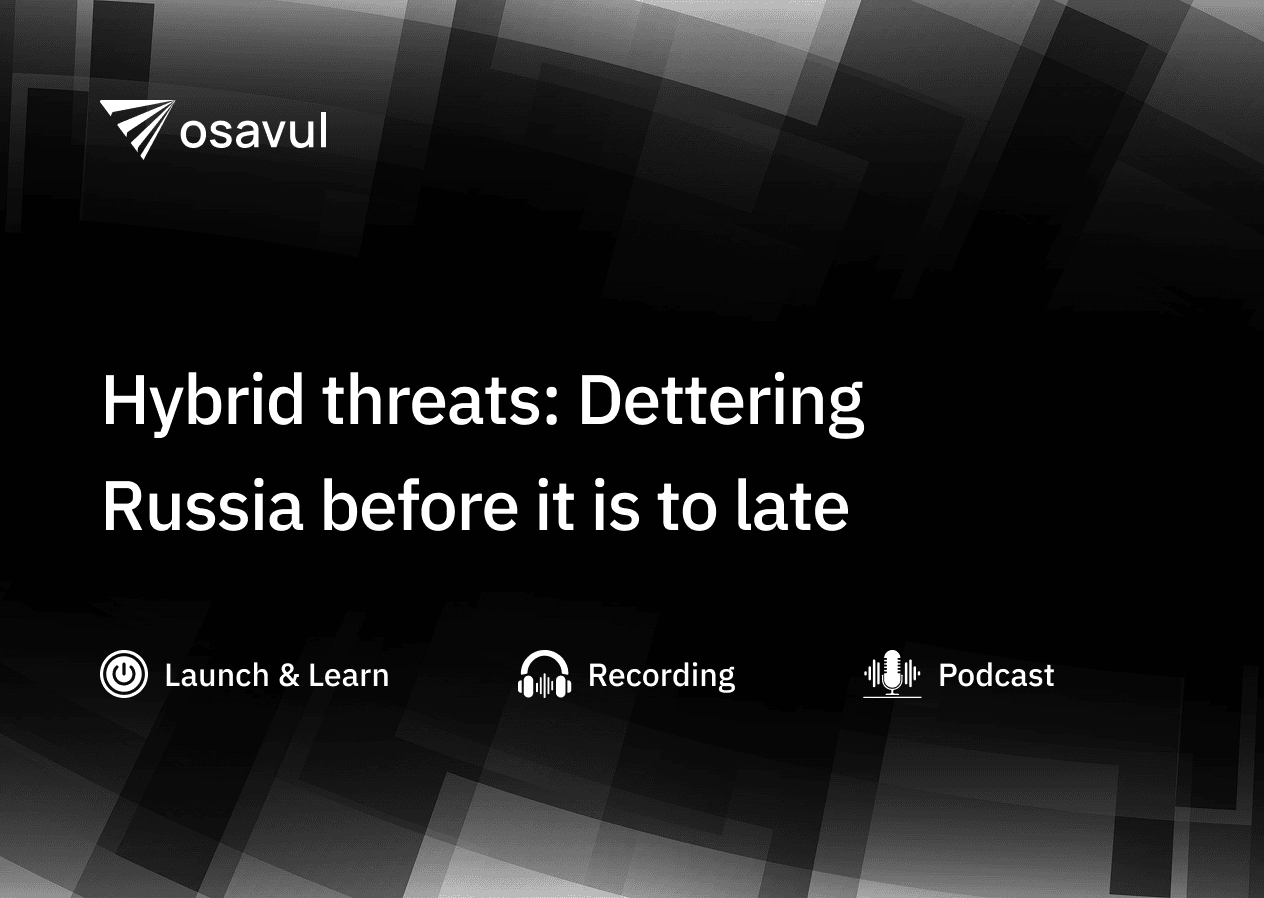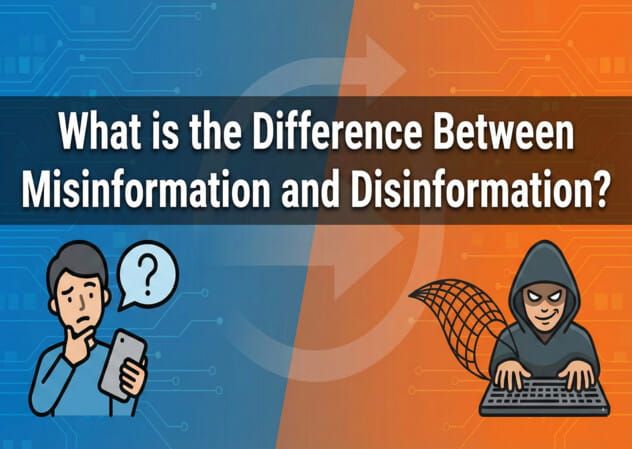
About Osavul
AI startup Osavul has developed technology to combat propaganda and Russian disinformation assisting the National Security and Defense Council (RNBO) and the Ministry of Defense in detecting information warfare activities. The founders of Osavul, Ukrainian serial entrepreneurs, aim to monetize their experience gained from the Russian-Ukrainian war.
On November 3, 2022, fake news headlines such as "NATO Injected HIV and Hepatitis into Ukraine" appeared in Russian media feeds. Osavul's AI algorithms helped counter hundreds of information attacks, including this one. Osavul's advantage lies in its speed. It analyzes hundreds of social media messages and posts, identifying organized campaigns more quickly than human analysts. "Debunking gets lost if the news has already gained traction," says Osavul co-founder Dmytro Pleshakov. The campaign involving "infected" donor blood failed to gain momentum. The Ministry of Health, in collaboration with the Center for Countering Disinformation (CCD) under the RNBO, promptly issued a detailed rebuttal. Osavul's services are provided free of charge to the Ukrainian government sector. However, similar technologies could cost billions. What challenges are involved in quickly selling such technologies?
How Osavul's technology works
Osavul is the response of former classmates and business partners Dmytro Bilash and Dmytro Pleshakov to the full-scale invasion on February 24. In 2022, Russians spent $1.9 billion on propaganda through state media, according to the Lithuanian non-governmental organization Debunk. Fighting it is not just about creating the anti-Russian propaganda instead, but detect attacks on early stages to form the right strategy to fight them. Osavul's co-founders decided to counter the fakes with artificial intelligence and $1 million in investments.
The startup operated in stealth mode for almost a year and publicly announced itself in early 2023. Their previous project, Captain Growth, was sold for nearly $4 million to the Israeli unicorn Perion Network in 2019. It was an advertising analysis tool for Facebook and Google AdWords, providing automated recommendations for making ads more effective.
After the deal, Bilash turned to angel investments and became the head of the Digital Future venture fund, while Pleshakov led Perion Network's Ukrainian R&D office. The portion of the exit earnings that went into Osavul's development remains undisclosed. However, in February 2023, the startup received an additional $1 million investment from SMRK fund, led by Oleksandr Kosovan.
The foundation of Osavul consists of the CommSecure and CIB Guard software. The first software detects narratives in social media messages and communities, including public groups in messengers. The second software analyzes public user pages, searches for bots, and determines whether they are acting in a coordinated manner.
Under the hood, Osavul utilizes large-scale language models based on transformer architecture with billions of parameters. This is the same technology underlying the immensely popular ChatGPT.
Bilash and Pleshakov's AI can work with Ukrainian, Russian, English, Polish, and French languages. The language models classify texts, identify emotions and viewpoints in messages, and recognize threatening and disinformation content like Russian disinformation. They are complemented by statistical and ML models that can differentiate coordinated information attacks from the deluge of information on social media.
Osavul's models were trained on real Russian information warfare tactics, according to Anait Hoperia, the head of the Department of Countering Information Threats at the CCD. To combat Russian propaganda and Russian disinformation, the center collaborates with American companies.
However, Osavul's greatest advancements have been made in analyzing Telegram. Anti-Ukrainian information attacks are tested on small messenger communities, says Pleshakov. It is convenient to catch information warfare in its early stages there. Focusing only on anti Russian propaganda by states, organizations and NGOs is not that effective as detecting real disinformation threats and reacting to them accordingly. However, Ukraine cannot officially cooperate with.











